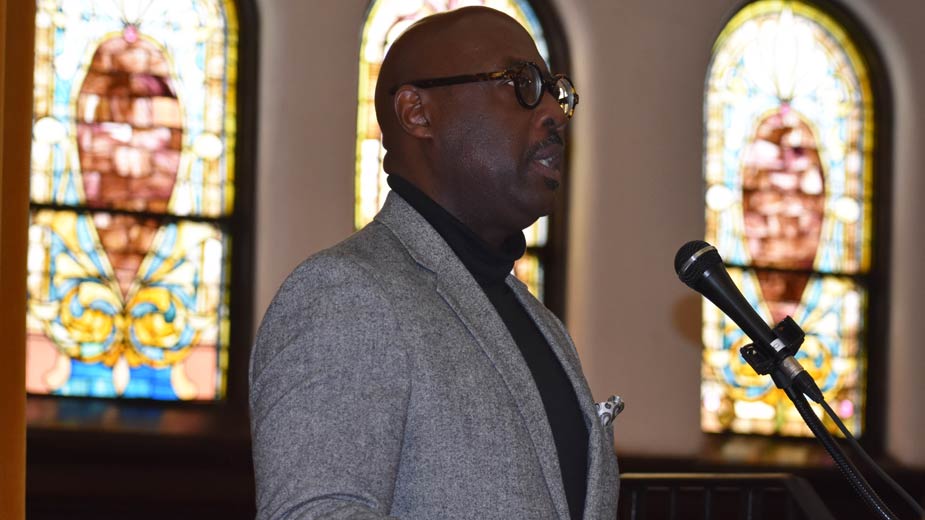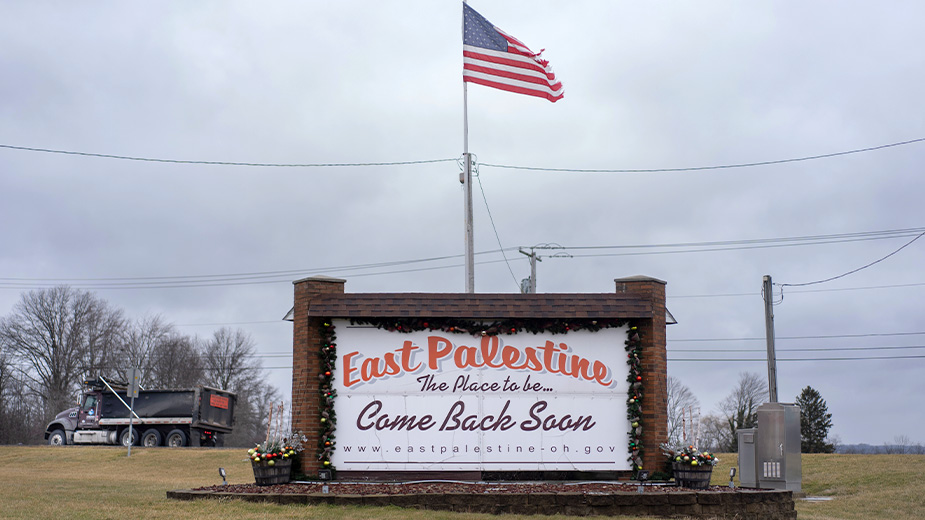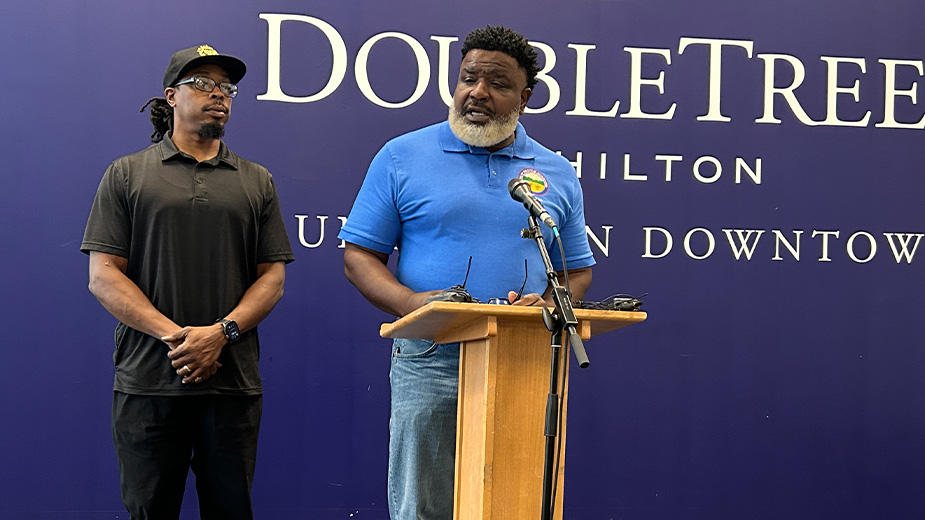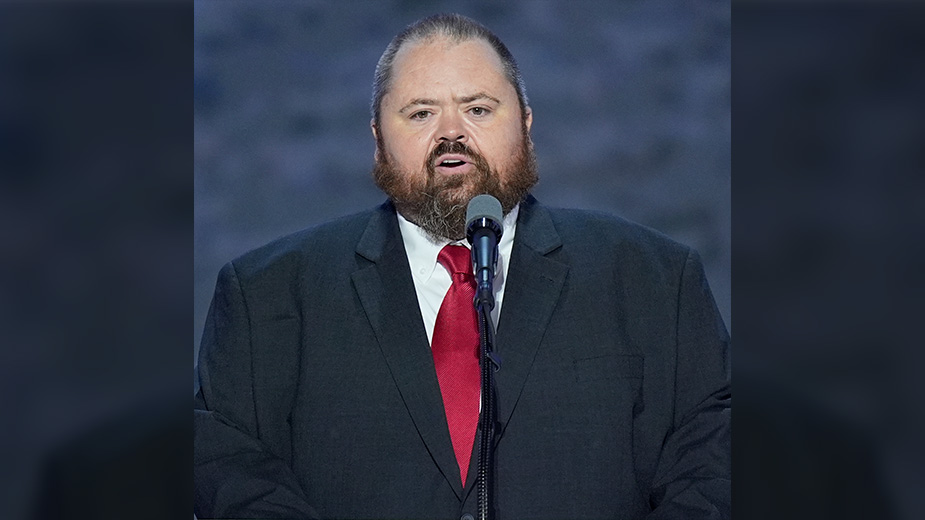US Can Overcome ‘Addiction’ to Racism, Yale Prof Says
YOUNGSTOWN, Ohio – The United States can overcome its historic “addiction to white supremacy” once people realize their collective power, the keynote speaker said Monday prior to a program commemorating the legacy of the Rev. Dr. Martin Luther King Jr.
The Rev. Dr. Willie James Jennings, an associate professor at Yale University’s Divinity School, reacted during an interview to President Donald Trump’s comments last week when he met with senators on immigration reform.
During that discussion in the White House, U.S. Sen. Dick Durbin, D-Ill., reported that Trump repeatedly used a vulgarism to describe African nations and Haiti, and questioned why the United States isn’t drawing more immigrants from nations such as Norway.
The remarks, which the White House has essentially denied, has drawn criticism both for use of the vulgarism and Trump’s stated preference for bringing in immigrants from the almost entirely white Scandinavian country.
“America has always had an addiction to white supremacy that predates America itself,” Jennings said in the First Presbyterian Church on Wick Avenue. While racial codes, innuendo, fear and threats have been used for decades to achieve the goals of white supremacy, with the Trump administration, “We have someone who does it far more overtly,” he declared, “and a party that welcomes its use.”
Jennings described himself as optimistic that America can overcome that addiction. “Part of it is because I’m a Christian. I’m disciplined by hope,” he said. “It will take more people who realize their collective power to make change at the local level first and foremost, and then at the national level.”
Jennings’ presentation at the forum in the church, “Remembering What Is Civil and Doing What Is Right: An Examination of Institutionalized Racism,” focused on the relationships between race and place.
“Segregation has been a fundamental engine that informs the planning, building, zoning and organizing of life flows of place,” he said. He is particularly troubled by how Christianity has been, and continues to be, “complicit and subject to this undertow,” and how Christian faith and life has been driven by the “geographic whims” of land developers, city planners civil engineers and real estate agents.
Further, he charged, white Christians are not “passive spectators” but have practiced their faith on top of those developments, “often presenting them as normal and natural,” when they were neither. One example he cited is the development of so-called sundown towns that purposely removed and kept out blacks and, sometimes, Jews and Asians.
Jennings noted that the street on which Towson University – which his youngest daughter attends — runs from beautiful buildings, houses and shopping centers near the suburban Baltimore university to dilapidated structures and areas with few if any stores.
“The street runs from predominantly white neighborhoods to predominantly black and Hispanic neighborhoods – one street connecting poverty and wealth,” he stated. “The one thing that seemed to move effortlessly up and down that street: the police.”
Jennings urged his audience to “learn and tell the truth” about this history of places: “We cannot acknowledge racial disparities in this country until we acknowledge and even confess geographic construction of disparity.”
In addition, he called on churches to involve themselves in how communities are shaped geographically by asking officeholders questions about issues such as building placement, neighborhood formation and zoning, and stressed the importance of recognizing the connection between space and discipleship.
“You have to say ‘yes’ and ‘no’ to where buildings are built, where buildings are torn down,” he said. “You need to be there. That’s why your discipleship makes a difference. It makes no difference in this room. It makes no difference on Sunday morning. It makes a difference on Tuesday evening there.”
The Rev. Lewis Macklin, who introduced Jennings, lauded the speaker for urging Christians to “be at the places where decisions are being made,” to express their values and be a moral compass, “Making sure that the wishes of the people are being honored and not opposed.”
Macklin also lamented the president’s comments, which have emboldened others to express similar views.
“The rhetoric is becoming more systemic and it’s becoming more flagrant,” he said.
Added Municipal Court Judge Carla Baldwin, Jennings “did a great job of reminding us of the importance of understanding the history of where we are, to understand how we arrived where we are in 2018.”
“To go where we want to go, which is fulfilling Dr. King’s dream for everyone’s life, we have to take control and be cognizant of the space that we’re in and how we want to get there,” she continued. “Only after we’ve done that can we move forward to where we want to go.”
Baldwin said, people are “ripe for change,” as evidenced by her election last year as the first black woman to sit on the Municipal Court, a dream she held for 25 years, since age 12. “It shows that it’s possible no matter what race you are. No matter what race you are, you can be born and bred right here in the Valley and stay here and live your dream,” she said.
Baldwin led one of four breakout sessions during the program aimed at forming plans to address community issues. Hers, devoted to criminal justice, focused on assisting community organizations such as Home for Good, Returning Citizens and the Oak Hill Collaborative that help felons re-enter society following their release from prison.
A follow-up meeting is scheduled for February, when the panel members will meet with representatives of those organizations, she said.
Terrell Vidale, owner of 2Deep Entertainment, led another panel, addressing entrepreneurship. His committee will focus on getting information out to those interested in becoming entrepreneurs, he said. “Once they get started, we want to be a resource for them so that they can build a strong foundation,” Vidale said.
The other two panels focused on issues related to education and youth.
Pictured at top: The Rev. Dr. Willie James Jennings, an associate professor at Yale University’s Divinity School.
Copyright 2024 The Business Journal, Youngstown, Ohio.



